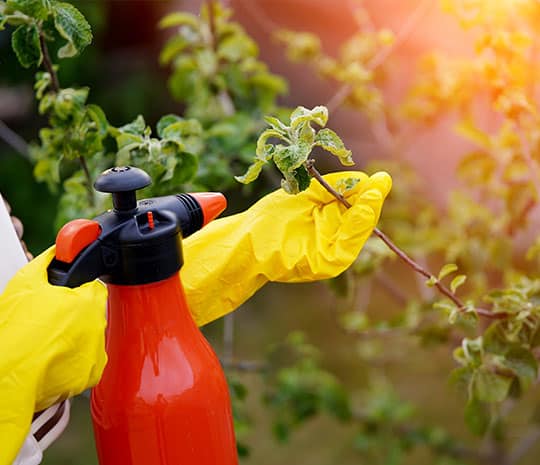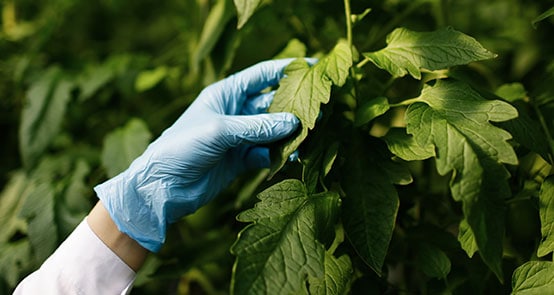Roundup Lawsuits
Roundup lawsuits are being filed because individuals are reporting that the herbicide Roundup causes cancer. Tens of thousands of people have filed lawsuits after they or their loved ones are diagnosed with cancer that may have been caused by glyphosate, the main ingredient in Roundup and other weed killers. A California jury recently awarded $25 million to a man who developed non-Hodgkin’s lymphoma after decades of exposure to glyphosate in the Monsanto product Roundup. Manufacturers have reached tentative settlements in 80% of the outstanding Roundup lawsuits. If you have been harmed by exposure to this dangerous herbicide, it’s not too late to demand fair compensation for your suffering.
McIntyre Law is a compassionate and capable law firm that’s on your side. We believe communicating with you helps us achieve the best outcomes for your case. That’s why we spend time getting to know you and your specific needs. At McIntyre Law, you’re part of the team, which is why we operate on a contingency fee basis. We don’t get paid until you do.

Is there currently a class-action Roundup lawsuit?
Thousands of Roundup cases were consolidated in a federal multidistrict litigation class-action suitHowever, each individual who has been harmed by this dangerous chemical still has the right to file their own lawsuit, and McIntyre Law is helping people do just that. This is a national issue— no matter where in the country you live, we can help. We’re based in America’s heartland and still believe in small-town service and values. You can call our founder Noble McIntyre anytime to talk about your case.

What to Know Before you File a Lawsuit
If you or a loved one have been exposed to Roundup or other pesticides and have developed cancer, you may be eligible to file a lawsuit. If you file a lawsuit, you’ll need to collect all of the medical records related to cancer treatment, as well as documents proving you were exposed to Roundup. You’ll also need to file specific legal documents with the court, like petitions and summonses.
Getting medical records can be difficult. The legal requirements for storing them vary from state to state—meaning that your records could soon be destroyed. Court filings must follow guidelines set forth by trained court officials. It can be a challenge when you’re suffering already.
Big companies like Monsanto, which manufactures Roundup, and Monsanto’s parent company, Bayer, will have experienced lawyers on their side. Hiring McIntyre’s experienced lawyers will give you your own experienced legal team and level the playing field.
What is a contingency fee?
When a lawyer works on a “contingency fee” basis, they’re agreeing to accept a fixed percentage of any monetary rewards from your lawsuit to cover their legal fees. If there are no rewards from your Roundup case, you don’t pay the lawyer. We get paid if, and only if, you do.
The Statute of Limitations for Roundup Lawsuits
The clock is ticking on your right to file a Roundup lawsuit. The specific statute of limitations for Roundup lawsuits depends on the state where you live. We can find out what it is for you. The most important thing to know: If you think you have a case, you should contact us right away.
What compensation can I get from a Roundup lawsuit?
If you or a loved one is suffering from the effects of this dangerous chemical, you could be eligible for a Roundup settlement. Courts don’t just reimburse medical expenses—they recognize the other costs that can result from dealing with cancer. Punitive damages can also be awarded.
Compensation types in a Roundup settlement may include:
- Lost wages
- Medical bills
- Pain and suffering
- Emotional damage

Working with McIntyre Law
Many families have suffered because of Roundup side effects. They need help and may not know where to turn. We’re here to help families get the compensation they deserve.
Scientists have been warning since the early 1980s about the effects of Roundup. Monsanto ignored these warnings and continued to profit. People who are suffering because of Monsanto’s carelessness deserve a fair settlement. We want to help them get it.
Do you have a case for a Roundup lawsuit?
If you or your loved one used Roundup on a regular basis and developed cancer, you may be eligible to file a Roundup lawsuit. We are happy to listen to your story at no cost to you. If we can help, we’ll start your lawsuit right away. We won’t take your case unless we think you stand a good chance of getting compensation, so the call won’t be a waste of time.

Meet Our Roundup Attorneys
Our experienced lawyers will work with you to get fair compensation for you and your loved one.

Noble McIntyre

Jeremy Thurman

Jordan Klingler

Monica Schweighart

Brenda Gómez O’Dell

Sarah Ramsey

Mario D’Angelo, Esq.

Daniel Zonas

Who manufactures Roundup?
Monsanto, which manufactures Roundup, is being sued for failing to disclose the risks of using the product. The pharmaceutical company Bayer purchased Monsanto in 2018 and has been working to settle thousands of lawsuits claiming that the product caused non-Hodgkin’s lymphoma and other cancers. Scientists warned that the product could cause non-Hodgkin’s lymphoma as far back as 1981, but Monsanto and Bayer continue to claim otherwise.
What is glyphosate?
Glyphosate is the main ingredient in Roundup, among other products. It is used by homeowners and landscapers to kill weeds and by farmers to protect crops. People who work in professions like landscaping and farming, where they use Roundup on a regular basis, are those most likely to have been exposed to dangerous levels of the chemical.
Glyphosate Cancer Risks
Does Roundup cause cancer? Monsanto has long claimed that it doesn’t. But in March 2015, the World Health Organization announced their conclusion that glyphosate, the main ingredient in Roundup, is “probably carcinogenic to humans.” In Roundup cancer lawsuits, judges have ruled that the scientific evidence is strong enough to warrant bringing these cases to trial.
Reported complications from Roundup include:
- Chronic lymphocytic leukemia
- Non-Hodgkin lymphoma
- Lymphocytic lymphoma
- B-cell lymphoma
- Hairy cell leukemia
Roundup and the EPA

The EPA is responsible for monitoring chemicals like Roundup and deciding if they are safe for the public to use.

